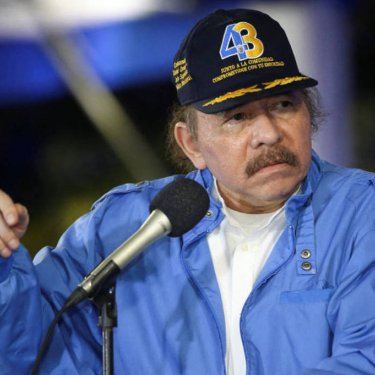RSF and PEN urge Nicaraguan legislators to reject “foreign agents” bill

In an increasingly fraught climate for independent media in Nicaragua, Reporters Without Borders (RSF) and the writers’ association PEN International call on the country’s legislators to reject a bill under which many journalists would have to register as “foreign agents.”
With its declared aim of “preventing crimes against state security,” the proposed ”Law regulating foreign agents” has triggered an outcry in Nicaraguan civil society and the international community.
Submitted to the national assembly last week by President Daniel Ortega’s Frente Sandinista party, which has a big majority in the assembly, the bill would require any person or entity receiving funds from abroad, including reporters for foreign media, to register with the interior ministry as a “foreign agent.”
“We totally condemn this outrageous and unconstitutional bill designed to step up censorship and intimidation of Nicaragua’s independent media,” said Emmanuel Colombié, the head of RSF’s Latin America desk. “The national assembly must reject this draconian legislation, which would provide Daniel Ortega’s government with a new repressive tool for silencing its critics.”
“The trials, persecution and attacks against journalists and media critical of the Nicaraguan government prove that the country’s authorities act systematically to restrict the right to freedom of expression,” PEN International president Jennifer Clement said. “Respect for rights must be a priority for the state. We urge Nicaragua’s government to stop criminalizing independent voices and we ask the national assembly to reject this bill, which aims to control and restrict the work of media, journalists and civil society organizations.”
Presented to the national assembly by Frente Sandinista legislators on 22 September, the bill proposes “a legal framework for persons or legal entities that depend on interests or funding from abroad and interfere in the country’s internal affairs.” Any person or entity registered with the interior ministry as a “foreign agent” would be subject to close surveillance and restrictions on their civil and political rights, and could have all of their assets seized.
NGOs, foreign media correspondents, representatives of international news agencies and even journalists working for Nicaraguan media that receive financial support from abroad would be on the foreign agents list. Firms of consultants, PR and advertising agencies, employees of information services and political consultants with links to foreign governments, corporations or foundations would also have to register and, as such, would be subject to close surveillance and would have to “refrain from intervening in domestic political affairs or matters” or risk judicial sanctions.
This bill has aggravated an already toxic environment for journalists. Attacks on independent media have grown steadily since the onset of a serious political crisis in April 2018. Acts of intimidation, threats, seizure of equipment, searches without warrants, orchestrated newsprint shortages and arbitrary arrests have become routine. More and more journalists have had to flee abroad to escape harassment campaigns and even death threats.
Several independent media outlets have been singled out. Police have been posted outside the offices of Confidencial, 100% Noticias Niú and Esta Semana since December 2018, preventing anyone from entering. On 11 September, a court announced the seizure of all the assets of Nicavisión Canal 12 – one the last independent TV channels still operating in Nicaragua, one that is very critical of the government – and the freezing of all the assets and bank accounts of the group that owns the TV channel. The judge issued the order in response to a decision by the government’s tax department to impose a fine of 607,000 US dollars on Nicavisión Canal 12 for supposedly irregular tax declarations from 2011 to 2013. The tax department also has another TV channel, Canal 10, in its sights.
Journalists have also been prosecuted in recent months. Kalua Salazar, the manager of La Costeñísima, a radio station based in the east coast town of Bluefields, was convicted of defamation on 23 September for exposing corruption in the nearby town of El Rama. In August, arbitrary judicial proceedings were initiated against David Quintana of Boletín Ecológico and William Aragón and Elsa Espinoza of the independent journalists’ coalition PCIN in connection with their reporting.
Nicaragua is ranked 117th out of 180 countries in RSF's 2020 World Press Freedom Index.



